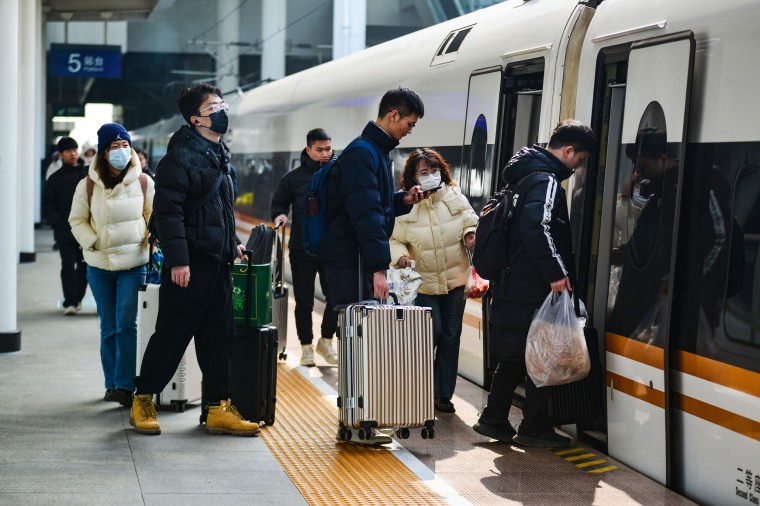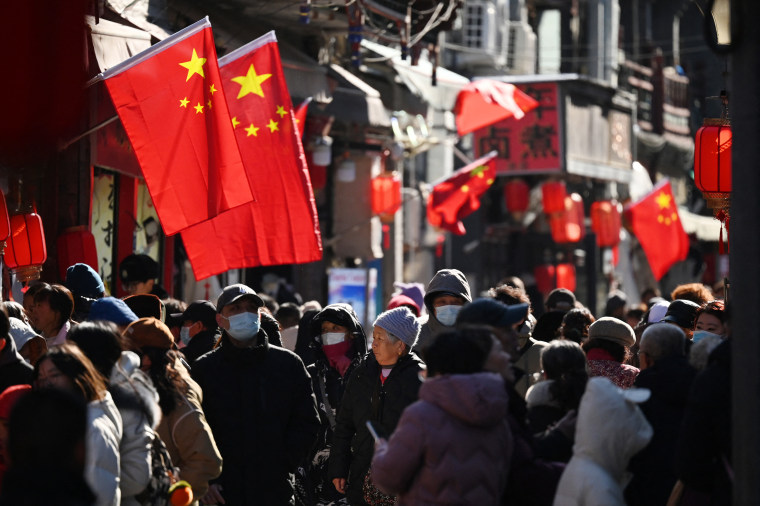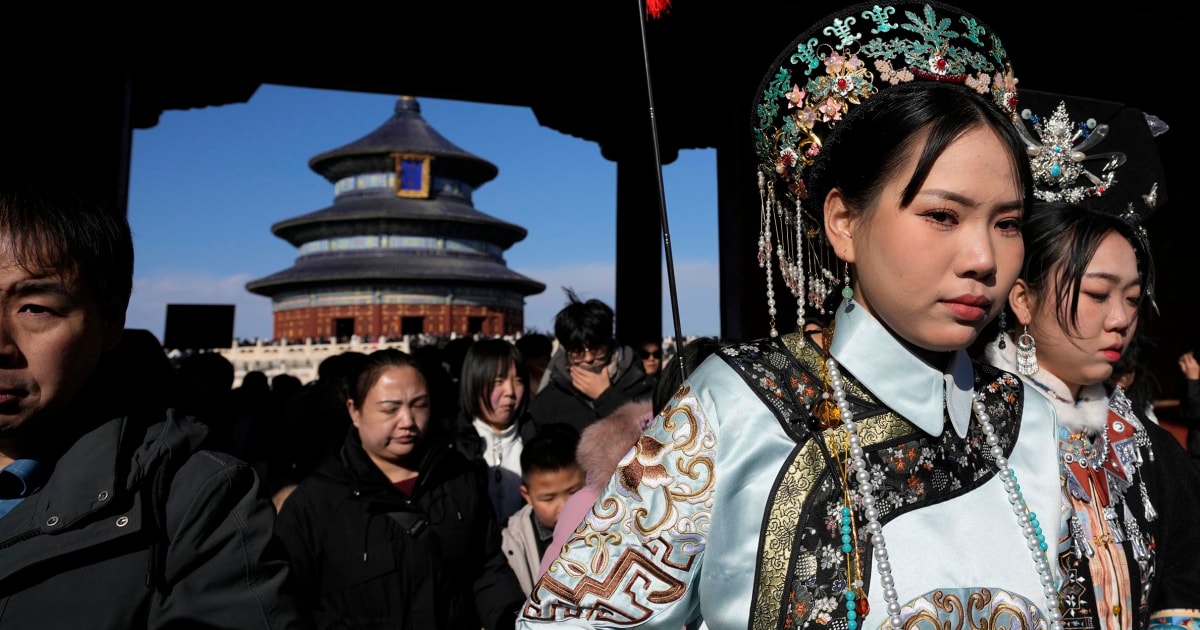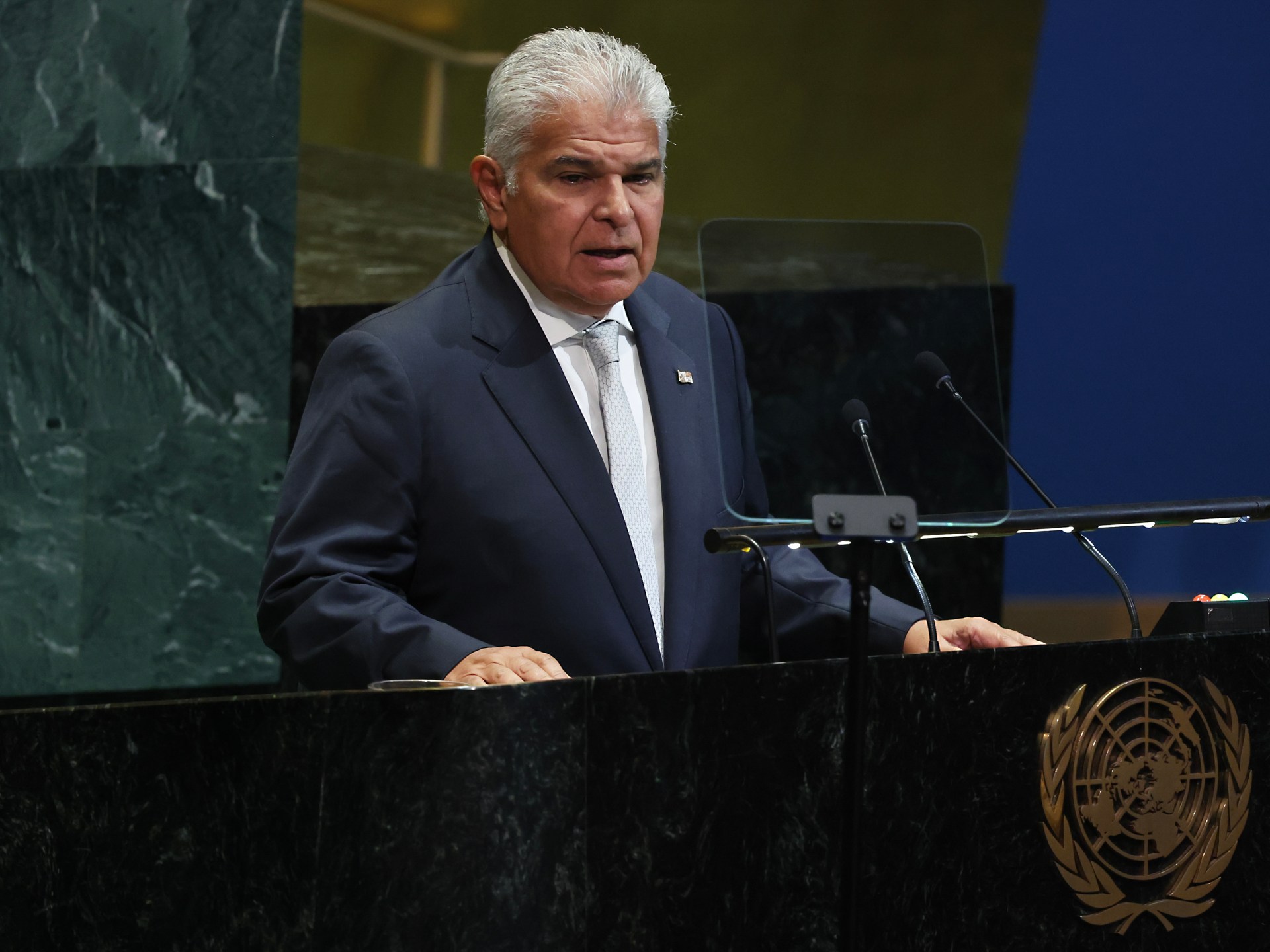BEIJING — For people in China facing an economic slowdown, every yuan counts these days.
During the last Lunar New Year holiday, construction worker Huang Peng took a high-speed train to his hometown in Heilongjiang Province, traveling more than 500 miles in about six hours.
This year he took a slow train instead, paying 160 yuan ($22) to sit upright for 18 hours. For Huang, that was a far more affordable option than the high-speed train ($92) or even a bed on the slow train ($40).
Though Huang makes more money in Beijing than he would back home, living expenses in the Chinese capital are high.
“It’s just so hard to save money,” he said in an interview at the Beijing Railway Station.
The Lunar New Year is China’s biggest holiday of the year and a traditional gauge of spending, as hundreds of millions of people travel to see family in the largest annual human migration on the planet.
Chinese travelers made a total of 501 million domestic trips during the eight-day holiday, an increase of 5.9% compared with last year, the Ministry of Culture and Tourism said Wednesday as the country returned to work. They spent 677 billion yuan ($93 million) on domestic tourism during the holiday, the ministry said, up 7% compared with last year.
But as they enter the Year of the Snake, Chinese consumers appear to be feeling squeezed.
Though China’s consumption expenditure per capita grew more than 5% last year, to about 28,200 yuan ($3,900), consumer confidence is at all-time lows, affecting retail sales in sectors such as clothing and cosmetics. That could limit long-term gross domestic product growth as China adjusts to slower growth overall.
Increasing consumption is considered vital for reducing China’s reliance on exports, all the more so as U.S. tariffs and Chinese counter-tariffs stir fears of an all-out trade war between the world’s two biggest economies.
Chinese shoppers are more focused on finding deals, with discount retailers such as Walmart’s Sam Club becoming local favorites.
“This year, I find myself buying for quality and value for money,” said a woman surnamed Ren who was on the Wangfujing shopping street in Beijing ahead of the holiday. “For example, I buy clothes with discounts and snacks, too.”

In an effort to encourage spending, Beijing has been pushing an expanded consumer trade-in scheme that offers subsidies for home appliances such as microwaves and rice cookers, as well as electronic items such as smartphones.
Though officials have not shared the total cost of the incentives, the Finance Ministry said last month that the government had so far allocated 81 billion yuan ($11 billion) for consumer goods trade-ins to support consumption in 2025, Reuters reported.
Shopper Xu Zicong said he saved 1,500 yuan ($208) on his new iPhone 16, thanks to the subsidy combined with discounts from the retailer and Apple, whose China sales are slowing as it faces growing competition from domestic rivals such as Huawei and Xiaomi.
“If there wasn’t a government subsidy, I wouldn’t consider buying an iPhone now,” Xu said at an electronics store in Beijing. “I might wait or get a cheaper phone from other brands.”
The subsidies apply for sales online, too, where shoppers find a deluge of deals on everything from movie tickets to restaurants to travel.

In a speech last week before the Lunar New Year holiday, Chinese leader Xi Jinping acknowledged facing “a complex and challenging situation” but said Beijing had “introduced a package of new measures, thereby facilitating the recovery and improvement of the economy.”
Experts say Chinese officials may need to introduce more aggressive stimulus measures.
“The subsidies have been highly successful since their rollout,” said Tianchen Xu, senior economist at the Economist Intelligence Unit in Beijing. “However, the effectiveness could fade if the government sticks to the same strategy of just subsidizing durable goods.”
In the meantime, Huang is hoping for a more comfortable trip home for the next Lunar New Year holiday.
“If I make more money next year,” he said, “then of course I will take the high-speed train and enjoy the luxury.”
Eunice Yoon reported from Beijing, and Jennifer Jett reported from Hong Kong.



